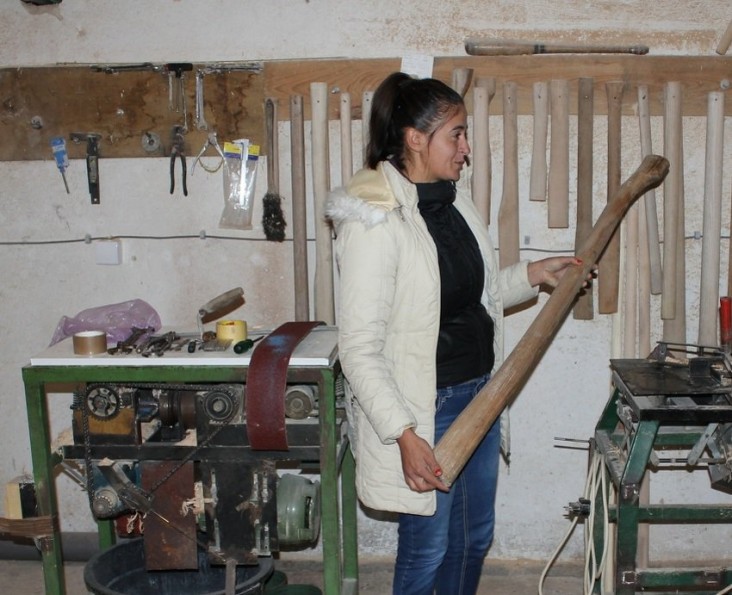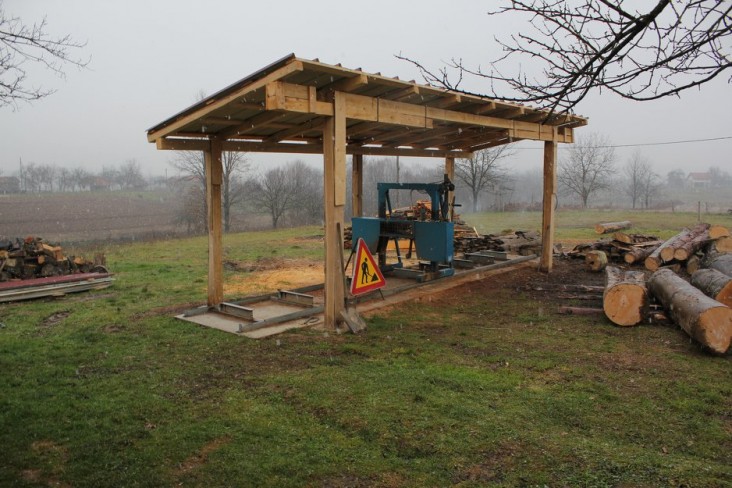Speeches Shim

Dragana Stojinić lives in a little village near Prijedor in Bosnia and Herzegovina (BiH). To get to her house you have to walk or drive for miles down a long, unpaved country road. But this is hardly unusual. She is not the only woman living in the countryside of BiH.
But she is the only woman in the entire country who makes hardwood handles for heavy duty tools.
She is surprised by her success—and her occupation. It is not like this was her lifelong dream. It came to her after all other options were gone.
“I used to grow raspberries and cucumbers. But that fell through. I was not paid for my work, and I was left with no income and loans I could not repay. We had to come up with something new,” said Stojinić. “Wood was the only thing left, and we took a chance on it.”
The work was hard, especially at first: She did not have the right tools or machinery and production was slow. But her family persisted—every member of the family worked, including her two children. Stojinić and her husband performed the most arduous tasks, while their son helped process wood, and their daughter helped with packing. They worked day and night, often to the point of exhaustion, to meet client needs and deadlines.
Stojinić, who taught herself this craft, said she is often asked why she chose such labor-intensive work. She replies that no type of work is too hard for her. All she wants is to provide her family with a more dignified life and safer livelihood. Her husband was seriously injured collecting logs from the forest because they did not have proper equipment for the job.
Looking for a chance to make her family business a proper company, Stojinić applied for a grant from a USAID program that supports businesses owned by marginalized women like her. She received the grant, and with additional funding from the city of Prijedor, she was able to buy tools that would make her work safer and more productive. She also registered the family business, furnished a workshop, and ultimately increased production, because, as she says, better tools provide for a better business.

Just one year later, Stojinić made more than 7,000 handles for hoes, shovels, axes and picks. With an increasing demand for the products, she hopes to buy a truck and start exporting them to foreign markets soon. Now the family does not fear injuries or defective products, and Stojinić has an income she is pleased with—which she hopes to keep improving.
“We still work a lot, but it is easier now. Production takes less time, and the quality is much better. I think our efforts will be worth it and that we will develop a business that our son will eventually be able to take over,” she said.
In a remote village devoid of opportunities, Stojinić has shown everyone—including her daughter—the strength of a woman determined to succeed and feed her family of four. She went from a self-taught artisan to a business owner with plans to become an exporter.
Stojinić is one of almost 100 women in BiH who have received support from USAID’s Marginalized Populations Support Program and nine municipalities to launch and grow their own businesses, providing them with livelihoods and independence, and restoring their faith in a better future. The program, which runs from 2015 to 2020, is designed to help groups underrepresented in BiH society, such as women, youth, people with disabilities, Roma and the LGBTI community.
LINKS

Comment
Make a general inquiry or suggest an improvement.